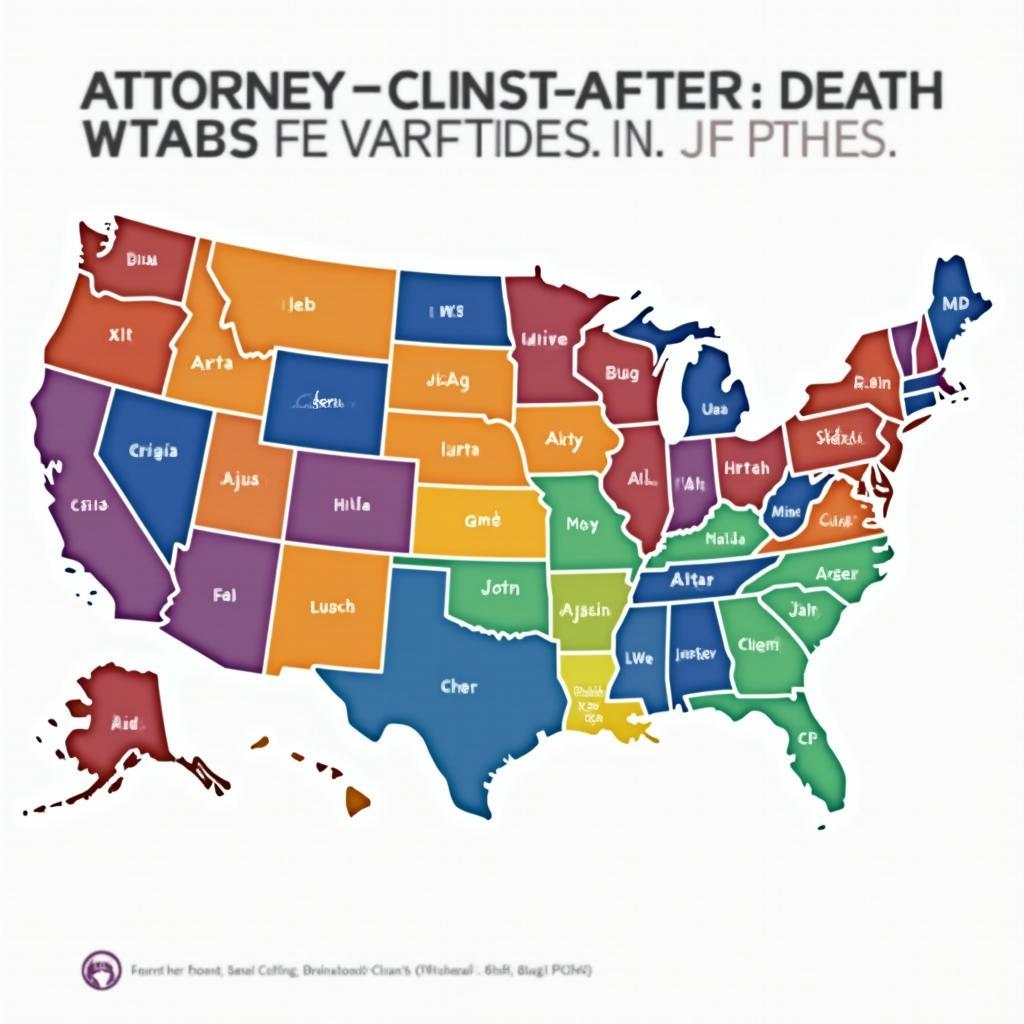
Attorney Client Privilege After Death: Does It Survive?
The attorney-client privilege is a cornerstone of the legal system, ensuring open communication between lawyers and their clients. But what happens to this privilege after a client dies? This is a complex question with significant implications for estates, families, and ongoing legal matters.
Similar to attorney client privilege california code, the privilege aims to foster trust. This article explores the intricacies of attorney-client privilege after death, examining its scope, exceptions, and how it varies across jurisdictions. Understanding these nuances is crucial for anyone involved in estate planning, probate, or dealing with the legal affairs of a deceased individual.
Does Attorney-Client Privilege End at Death?
The short answer is: not necessarily. While the client is no longer alive to assert the privilege, it doesn’t automatically disappear. In many jurisdictions, the privilege continues to protect confidential communications even after death. This protection prevents the disclosure of privileged information in court proceedings, investigations, and other legal contexts.
Who Can Assert the Privilege After Death?
The right to assert the privilege typically falls to the deceased client’s estate representative, such as the executor or administrator. This individual acts on behalf of the deceased client’s interests and can invoke the privilege to protect confidential communications made during the client’s lifetime. However, the specific rules regarding who can assert the privilege can differ depending on the jurisdiction and the circumstances of the case.
 Estate Representative Asserting Attorney Client Privilege After Death
Estate Representative Asserting Attorney Client Privilege After Death
Exceptions to Attorney-Client Privilege After Death
Even though the privilege often survives death, there are several important exceptions. These exceptions allow for the disclosure of privileged information in certain situations where the interests of justice or other compelling considerations outweigh the need for confidentiality.
Disputes Within the Estate
One common exception arises in disputes concerning the deceased client’s will or estate. If beneficiaries or heirs are contesting the validity of the will or the distribution of assets, the attorney-client privilege may be waived to resolve the dispute fairly. This exception recognizes that the deceased client’s intentions, as communicated to their attorney, can be crucial in resolving such disputes. This is also often seen in situations where there are questions surrounding testamentary capacity.
This relates to how attorney client confidentiality third party operates, as third parties may become involved. For example, suppose the deceased client’s communications with their attorney provide evidence of undue influence or coercion in the creation of the will. In that case, this information might be admissible in court despite the privilege.
 Will Contest and Attorney Client Privilege
Will Contest and Attorney Client Privilege
Criminal Investigations
Another exception pertains to criminal investigations. If the deceased client’s communications with their attorney are relevant to a criminal investigation, the privilege may be waived to allow law enforcement to gather evidence and prosecute crimes. This exception is often applied cautiously, with courts balancing the need for justice against the importance of preserving confidentiality.
Preventing Harm to Others
In some cases, attorney-client privilege may be waived after death to prevent harm to others. For instance, if the deceased client confided in their attorney about a plan to commit a crime or harm another person, the privilege may be waived to prevent that harm from occurring. This exception is based on the principle that the privilege should not be used as a shield to protect future criminal activity.
The privilege operates similarly to the attorney client privilege california statute, with considerations for public safety. For example, imagine a deceased client who, before their death, confessed to their attorney their involvement in a crime that implicated another person who was subsequently wrongly convicted. In such a scenario, revealing the privileged information might be necessary to exonerate the wrongly convicted individual.
Variations in State Laws
It’s essential to recognize that the rules governing attorney-client privilege after death can vary significantly across different states. Some states have specific statutes that address the issue, while others rely on common law principles. Therefore, it’s crucial to consult with a qualified attorney in the relevant jurisdiction to determine the specific rules that apply.
Knowing the attorney client privilege examples can help clarify these legal intricacies. These examples can highlight the nuances of the privilege in various real-world scenarios, making the concept more accessible to individuals navigating the complexities of estate law and legal representation.
 Varying State Laws on Attorney Client Privilege
Varying State Laws on Attorney Client Privilege
Seeking Legal Advice
Navigating the complexities of attorney-client privilege after death can be challenging. If you have questions or concerns about the privilege in a specific situation, it is always best to seek legal advice from a qualified attorney specializing in estate law.
It’s important to consider an attorney for wills and power of attorney to understand these matters in advance. They can provide valuable insights into how to protect your interests and ensure that your wishes are respected after your death.
Conclusion
Attorney-client privilege after death is a complex area of law with significant implications for individuals, families, and estates. While the privilege often survives the client’s death, exceptions exist that allow for the disclosure of privileged information in certain circumstances. Understanding these intricacies is essential for anyone dealing with legal matters involving a deceased individual. Seeking legal counsel is crucial for navigating these complex issues and ensuring the proper application of the attorney-client privilege after death.
FAQ
-
Does attorney-client privilege automatically end upon death? No, it doesn’t automatically end and often continues to protect confidential communications.
-
Who can assert the privilege after the client’s death? Typically, the deceased client’s estate representative, such as the executor or administrator.
-
Are there any exceptions to the privilege after death? Yes, exceptions include disputes within the estate, criminal investigations, and preventing harm to others.
-
Do state laws vary regarding attorney-client privilege after death? Yes, state laws can vary significantly, so it’s essential to consult with an attorney in the relevant jurisdiction.
-
When should I seek legal advice about attorney-client privilege after death? If you have any questions or concerns about the privilege in a specific situation, it’s always best to seek legal advice from a qualified attorney.
-
How can an attorney help me understand the privilege after death? An attorney can explain the relevant laws in your jurisdiction and advise you on how to protect your interests or the interests of a deceased client.
-
What is the importance of understanding attorney-client privilege after death? Understanding the privilege can help protect sensitive information and ensure that legal matters are handled appropriately after a client’s death.




